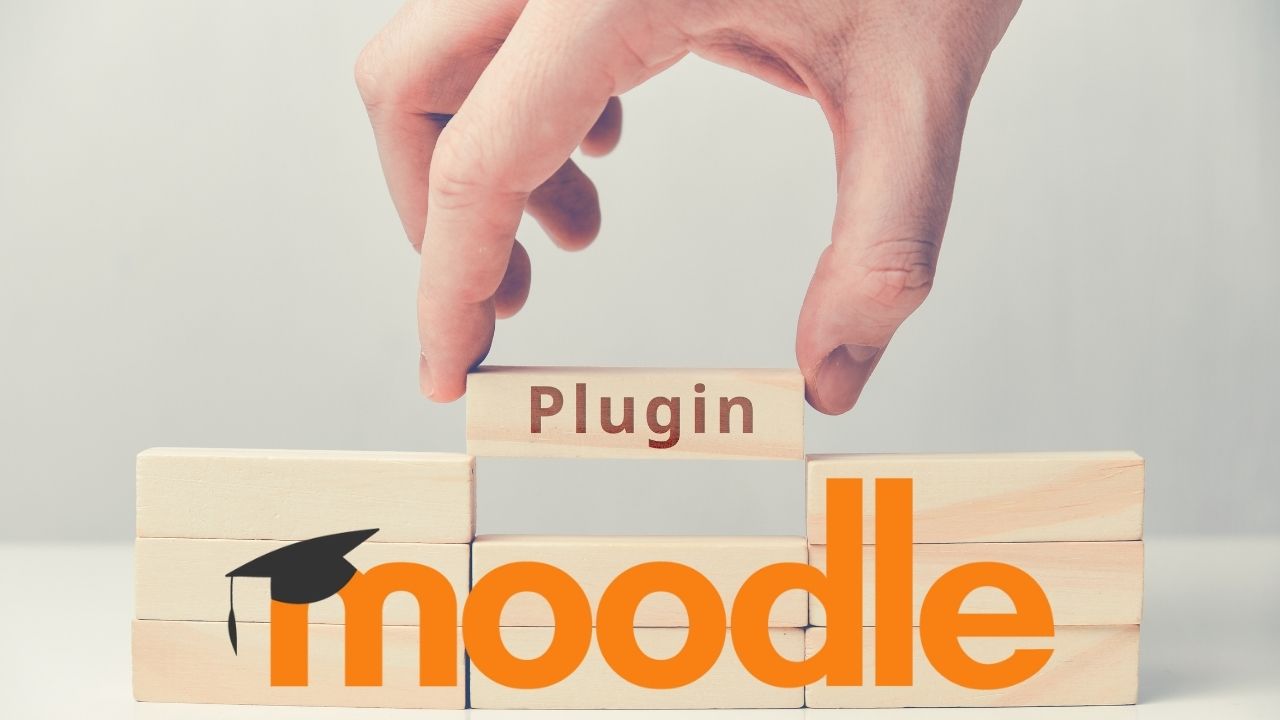Moodle Plugins enable you to add additional features and functionality to Moodle, such as new activities, new quiz question types, new reports, new blocks, integrations with other systems and many more features. The easiest and most maintainable way to add new functionality to Moodle is by installing a new Moodle plugin
Moodle supports more than 50 types of plugin to extend the functionality. As of writing of this post, Moodle Plugins directory includes more than 1967 plugins contributed by 1080+ Moodle community developers.
There are three ways how the plugin code can be installed in Moodle.
- From the Moodle plugins directory
- via uploaded ZIP file
- Manually at the server
Installing from the Moodle plugins directory:
- Login as an admin and go to Site administration > Plugins > Install plugins. (If you can’t find this location, then plugin installation is prevented on your site.)

- Click the button ‘Install plugins from Moodle plugins directory’.
- Search for a plugin with an Install button, click the Install button then click Continue.
- Confirm the installation request
- Check the plugin validation report.

Installing via uploaded ZIP file
- Go to the Moodle plugins directory, select your current Moodle version, then choose a plugin with a Download button and download the ZIP file.
- Login to your Moodle site as an admin and go to Administration > Site administration > Plugins > Install plugins.
- Upload the ZIP file. You should only be prompted to add extra details (in the Show more section) if your plugin is not automatically detected.
- If your target directory is not writeable, you will see a warning message.
- Check the plugin validation report
Installing manually at the server
If you can’t deploy the plugin code via the administration web interface, you have to copy it to the server file system manually (e.g. if the web server process does not have write access to the Moodle installation tree to do this for you).
You need to establish the correct path in the Moodle code tree. For beginners, I would like to bring attention to the plugin nomenclature for better understanding the Moodle code tree.
If you carefully observe the plugin name then you will observe that it is starting to look similar to block_sharing_cart, theme_essential or editor_marklar etc. This means that the first word includes the type of plugin and the second word includes the name. You need to extract the file contents in the appropriate directory on your server. Some Common locations are:
- /path/to/moodle/theme/ – themes
- /path/to/moodle/mod/ – activity modules and resources
- /path/to/moodle/blocks/ – blocks
- /path/to/moodle/question/type/ – question types
- /path/to/moodle/course/format/ – course formats
- /path/to/moodle/admin/report/ – admin reports
Caution before installing Moodle plugins
Definitely Moodle plugins help to add new features and add additional functionality but you need to consider the following points before installing a new plugin:
- Do you really need the plugin? There are many workarounds of doing things in Moodle and achieve similar results. So please make sure to explore all core options before looking for any plugin.
- Is the plugin well maintained and supported for supported Moodle version.
- How you will keep your Moodle updated in future in case the Plugin is not supported or not updated anymore by the developer.
- Is the plugin update frequency is aligned with your overall Moodle site upgrade frequency.




[…] above method works only if you have access to Site Administrator account. However in case if you are not having the admin access, then there is a caveat to check […]
[…] enrolment fee plugin is now supported (launched in a browser outside the app to complete the […]
[…] Learning have expertise which delivers custom development of Moodle, installation and configuration services on clients’ servers, Moodle cloud services and training programs. They […]
[…] as the name suggest is Modular in nature. You can extend the Moodle functionality by installing plugins on your Moodle […]
[…] If you are not familiar with Moodle plugins installation, check out the complete Moodle Plugins Installation guide here. […]
[…] You can download the latest version of the PSG course format from Moodle plugins directory here. It is available for Moodle 3.4, 3.9, 3.10 & 3.11 versions. You also need to install the Behavior Analytics Block plugin. You can see this guide to learn how to install a Moodle plugin. […]
[…] If you are not familiar with Moodle plugins installation, check out the complete Moodle Plugins Installation guide here. […]
[…] can follow this guide to install the Boost Union theme on your Moodle site. Once installed and activated, it will not make any […]
[…] download the sharing cart plugin through the Moodle plugins database here. To install it, you can follow this guide, in case you are not aware how to install a Moodle plugin. Once installed, you can use the sharing […]
[…] If you are not familiar with Moodle plugins installation, check out the complete Moodle Plugins Installation guide here. […]
[…] you are not familiar with Moodle plugins installation, check out the complete Moodle Plugins Installation guide here. This report shows the marks for the sections of the quiz. Like other quiz reports, the teacher can […]
[…] the Restriction by section completion plugin from the plugins directory here. Please follow this guide if you want to learn about how to install a Moodle plugin. Once installed it is ready to use […]
[…] The Real Time Quiz plugin is one of the very well maintained and supported Moodle plugins over the years. It has been updated timely for all Moodle version by maintainer – Davo Smith. You can download the latest version of the Real Time Quiz plugin from the official plugins repository here. If you are new to Moodle, you can check out this guide to learn how to install Moodle plugins. […]
[…] plugin is a availability condition Moodle plugin which makes it easier to show all modules or sections based on the following criteria X […]
[…] Moodle plugins directory here. In case you are new to Moodle, please follow this guide to learn how to install Moodle plugins. However, this plugin needs the Multi-Language Content Filter plugin […]
[…] repository here. In case you are new to Moodle, please go through this guide to learn how to install a Moodle plugin. The plugin is compatible with all Major Moodle versions. It is one of the most actively maintained […]
[…] from the Moodle plugins directory here. If you are new to Moodle, please follow this guide to learn how to install a Moodle plugin. This plugin has been one of the most popular and most actively maintained Moodle […]
[…] You can download the PCast plugin from the official repository here. In case you are new to Moodle, please follow this guide to learn how to install a Moodle plugin. […]
[…] You can download the JazzQuiz activity plugin from the official Moodle plugins repository here. If you are new to Moodle, please follow this guide to learn how to install a Moodle plugin. […]
[…] plugin’s repository here. If you are new to Moodle, please visit this guide to understand How to install a Moodle plugin. The plugin is available for Moodle 3.9 version onwards till Moodle 4.2 […]
[…] official Moodle plugins database here. If you are new to Moodle, please follow this guide to learn how to install a Moodle plugin. Once installed and enabled by site administrator, as a teacher you can start using this […]
[…] the official repository here. In case you are new to Moodle, please go through this guide to learn how to install a Moodle plugin. After installing, you need to add the enrolment method to your Moodle […]
[…] from the official repository here. If you are new to Moodle, please follow this guide to learn how to install a Moodle plugin. Once the plugin is installed, you can go to Site administration > Users > Accounts > User […]
[…] You can download the Wordcloud activity from the Moodle plugins repository here. If you are new to Moodle, please follow this guide to learn how to install a Moodle plugin. […]
[…] The Guest Quiz plugin can be downloaded from the Moodle plugins repository here. In case you are new to Moodle, please go through this guide to learn how to install a Moodle plugin. […]
[…] Once you have the plugin folder (it will be soon released in the Moodle plugins repository), install it to the TinyMCE folder on your site or by using the drag and drop plugin installer as Administrator. If you are not familiar with Moodle plugins installation, check out the complete Moodle Plugins Installation guide here. […]